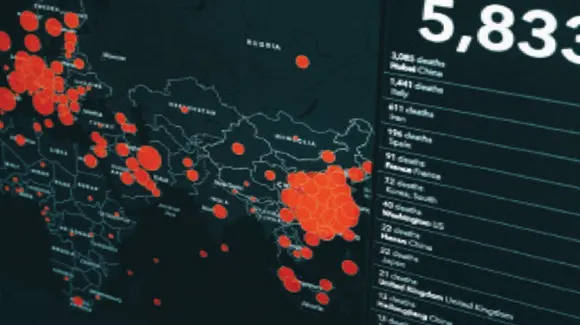Industry Insights
Discover new insights regarding the latest technology issues and trends from our industry experts

Cloud-based Machine Learning to Address the Nation’s Most Urgent Behavioral Health Problems
Machine learning has long been underutilized in behavioral health relative to other areas of medicine, including by the Federal Government. In this white paper, Eagle experts suggest ways to use machine learning to model the nation’s behavioral health in the aftermath of the COVID-19 pandemic. The focus of these models includes determining the potential impact of the pandemic on mental health, such as the number of individuals likely to experience depression or anxiety, as well as predicting which children may struggle with maintaining motivation for learning during prolonged periods of online education. This article explores the use of machine learning for addressing these behavioral health concerns, and provides guidance on creating models that are standardized, robust, and fair.

Follow-up Psychiatric Care and Risk of Readmission in Patients with Serious Mental Illness in State Funded or Operated Facilities
Federal agencies recommend that psychiatric inpatients receive follow-up outpatient care within 30 days of discharge in order to reduce adverse outcomes, but little evidence of this policy’s effectiveness exists. This peer-reviewed article examines whether it reduces readmissions in a large, multi-state sample of psychiatric inpatients.

The National Public Health Data System: The Case for an Aggregated National Healthcare Database
The nation’s healthcare data systems are fragmented and siloed, preventing real-time insights and hindering population health trend prediction. To solve this challenge, this white paper proposes the creation of an aggregated, longitudinal U.S. public health database.

The Missing Link – Solving Patient Privacy Protection and Data Linkage Challenges for the National Public Health Data System FedHealthIT
This article describes a central challenge in creating the National Public Health Data System (NPHDS) and provides recommendations to include replacing Personal Identifiable Information (PII) with a unique but persistent universal patient enumerator before transferring the data to the central NPHDS repository — enabling the integration of health data on a fully interoperable but privacy-protected basis.

The Federal Government’s Move Towards a National Healthcare Database FedHealthIT
This roundtable interview with industry experts discusses the nation’s fragmented health data systems and the consequences and potential solutions to rectify gaps in these systems for improved population health.

A Roadmap for Public Health Data Collection in the Time of COVID-19 for Federal Health Agencies
In this article, we examine how two new technologies could improve public health data. The article provides insight for both the healthcare industry and the Government regarding preparation for data handling during the next pandemic, bioterror strike, or uncontrolled drug-resistant pathogen—including the development of Public-Private Partnerships.
